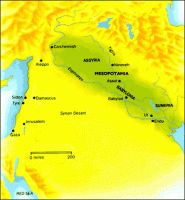|
BACKGROUND
Matthew, Mark, Luke and John
|
Online links to scriptures (New International Version [NIV] unless otherwise stated) are shown in blue
|
|
Split into 3 categories, we considered 2 last week and will look at the third grouping today.
You will to research the details for yourself from the scriptures provided. Just click on the scripture references for instant reference in the NIV.
|
| LIVING THE CHRISTIAN LIFE |
|
|
| NEXT WEEK: A REVELATION OF... GOD'S CALL TO HIS CHURCH |
|
 We live in a church system that has evolved over the past, nearly 2000 years. It is obvious that the church had problems of doctrine and organisation right from its formation. Many people are reluctant to admit to this, but there were difficulties between Jews and gentiles in a theological sense, as well as practical organisational problems in terms of looking after the needy widows. However, over the centuries, church structures developed and became formalised along human lines. While the Reformation saw some changes, both in theology and organisation, the old, unbiblical, structures have tended to replicate themselves within our modern denominations and groupings. The Bible warns of this.
8 See to it that no one takes you captive through hollow and deceptive philosophy, which depends on human tradition and the basic principles of this world rather than on Christ. (Colossians 2:8)
Today, in these end times, God is calling His church back to basics. To its relational roots rather than formal structural organisation and methods that restrict, through human intervention, the Holy Spirit from truly working in the way He would wish.
Yes, God is calling us today to return to the principles set out in the New Testament, not to create the 'perfect church', for it will still have you and I in it, but rather, one capable of absorbing the promised bountiful end-time harvest.
|
| A NOTE FROM DAVID |
|
 We all know about these principles. The problem is living them!
I trust that this week's teaching will be as timely a reminder to you as it is to me!
Where is Mesopotamia?
Babylonia was situated in the area known as Mesopotamia (Greek for "between the rivers"). Mesopotamia was in the Near East in roughly the same geographical position as modern Iraq. Two great rivers flowed through this land: the Tigris and the Euphrates. Along these two rivers were many great trading cities such as Ur and Babylon on the Euphrates.
Tigris and Euphrates
Babylonia rests on a flat plain with the two large rivers flowing through it, the Tigris and Euphrates. Their course runs from Anatolia and Syria to the Persian Gulf. Mountains surround the East and North sides of the plain, the Zagros chain and Kurdistan, and the Syrian and Arabian deserts guard the west and south.
Climate
In the summertime the climate is hot and dry, and the winter is cold and wet. In the spring the Tigris and Euphrates rivers overflow their banks, flooding great portions of the plain. Lots of water and proper control enabled man in ancient times to produce abundant crops, mostly barley and sesame, with abundant grazing land in the lush meadows for the cattle, sheep and goats.
As the hot dry south wind came faithfully the date palm was cultivated and its fruit was ripened. The abundant clay was formed into bricks to build houses and monumental structures, and also provided clay tablets for writing purposes.
In order to acquire precious metals, stones and sturdy timber the inhabitants engaged in foreign trade. The vast resource of petroleum was all but useless to ancient man. Today the physical features of the region along with its climate are similar to how it was in the ancient world, and the Arabs who live there still live in a manner very similar to their ancient predecessors.
Ideal for Trade
Because Babylon was situated on the river Euphrates it was an ideal place for trade. To the north they could trade up the river to Syria and beyond and could act as a staging post with the cities of Sumer to the south. When Babylon became important, people would have wanted to live there because of the economic benefits it would give being in a large city with lots of merchants and tradesmen passing through. An important city like Babylon would also give a greater degree of security to its inhabitants.
In Babylonia and in all of southern Mesopotamia there is lots of clay which people could bake and make into bricks with which to build houses. This helped the development of civilization in the area.
|
So until next week.......
MAY GOD BLESS YOU AND YOU BLESS GOD!
His servant and yours

Learn more about us at...
www.wwj.org.nz/about.php
|
A DAVID'S DOODLING
380. Repentance brings peace with God - forgiveness, peace with ones self.
David Tait
|
Check
out the WWJ website for….
More David's Doodlings: www.wwj.org.nz/dd.php
Marriage and Family Facts: http://www.wwj.org.nz/maffacts.php
Just jokes: http://www.wwj.org.nz/jokes.php
Waxing Lyrical: http://www.wwj.org.nz/waxing.php
If Only I'd Thought of it: http://www.wwj.org.nz/thought.php
|



